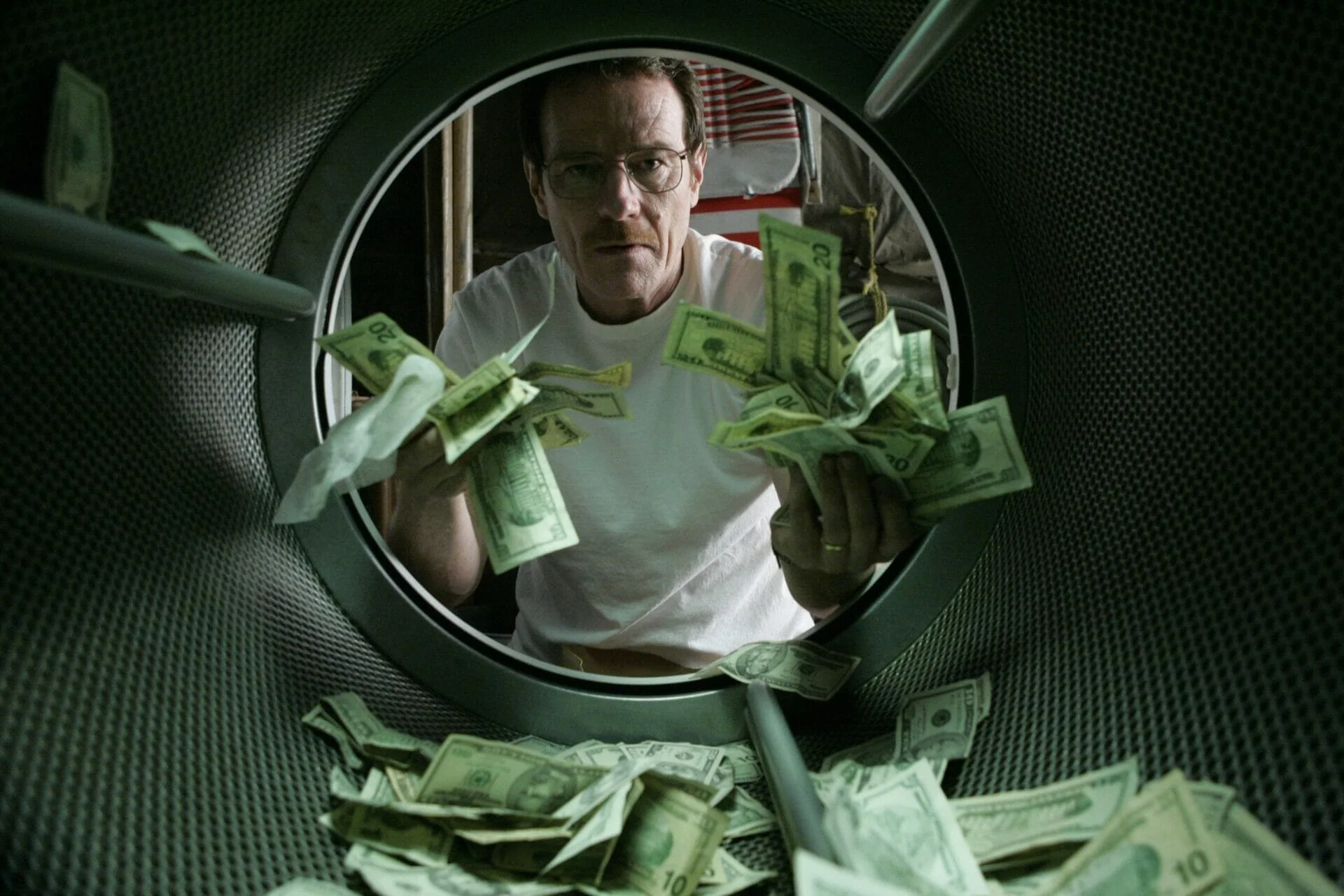
Breaking Bad | The downward spiral of an ordinary man
Creator
Showrunner
Year
Country
Seasons
Runtime
Original language
Genre
Music by
Albuquerque, New Mexico. When Walter White – a loving husband, father, and chemistry teacher – finds out he has lung cancer. He then starts a career as a methamphetamine producer with Jesse Pinkman, a former student, to save money for his family before dying. Breaking Bad is an ordinary man’s journey into the crazy world of drug dealing – a downward spiral into power, corruption, and ultimately, evil.
Ever since The Godfather and The Sopranos (the former for movies, the latter for television), worldwide audiences are accustomed to the layered narration of the Mob through its peculiar and engaging plot twists, characters, and themes: the constant struggle between good and evil, the lust for money and the escalation of violence – which often leads to self-destruction. Expanding them into universal moral conflicts – plus having the luxury to witness the journey without first-hand experience – turns into a healing and almost cathartic process for viewers’ unconscious need for escaping monotony.
A sociological experiment
The show had such an echo – thanks to its in-depth writing and raw visual style – that Netflix decided to produce a spin-off series (Better Call Saul, with Bob Odenkirk’s character as the protagonist) and a less solid movie as a follow-up to the original story in 2019 (El Camino).
Vince Gilligan (known for The X-files) created the show and described it in an interview as a sociological experiment. He confessed that “lo and behold, people who were fans of the show were sympathetic to Walt no matter what he did, which is I think very interesting. So that to me, was at least part of the experiment.”
Produced by AMC, Breaking Bad showcases the dry, deceptive acting of Bryan Cranston, Aaron Paul, and Giancarlo Esposito, among others. Besides, it offers a powerful antihero portrait (also seen in Taxi Driver, Scarface, and later on in Narcos), in a neo-western setting (No Country For Old Men), and a hint of Tarantino’s black comedy (Pulp Fiction). Overall, this winning formula granted the show a total of 150 awards and marked a new chapter in TV history.
Tag
Buy a ☕ for Hypercritic








